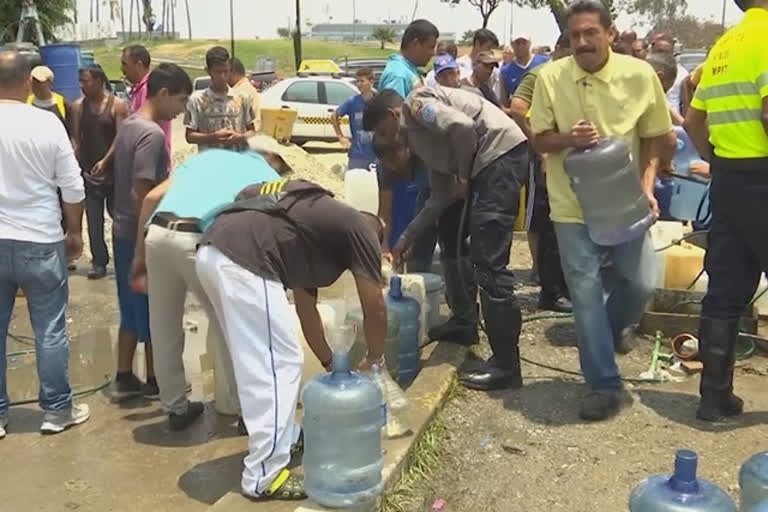Caracas: Venezuelans enduring constant blackouts, which affect water pumps, struggled on Monday to make sense of an announcement by President Nicolas Maduro to hold nationwide electricity rationing under a plan to restore crumbling basic services.
People waiting in long queues to collect water Many Caracas residents have become used to waiting in long queues to collect water at street taps in the city.
Some brought large drums to collect water, while others were making do with small containers.
Also Read:Trolleybus-tram crash injures dozens in Czech city
"We will have to ask God to help us solve this problem because it is serious, because not having light, not having water is quite difficult, since water is vital and we hope that they solve this but they (the government) never gives a reliable reason," said María Rojas, a 57-year-old woman while she waited to collect water from a street tap.
Since a massive power failure struck March 7, the nation has experienced near-daily blackouts and a breakdown in critical services such as running water and public transportation.
Classes have been intermittently suspended for nearly a week, while workdays tend to end in the early afternoon so millions aren't stranded due to cuts to the Caracas metro service.
Maduro late Sunday instituted a 30-day plan to ration electricity, but he provided no details fueling confusion.
Also Read:UK MPs reject four alternatives to Brexit deal
He called on Venezuelans to be calm, accusing US-backed opponents of launching an attack on the power grid.
Opposition leader Juan Guaido, who is calling on Maduro to step down, says years of neglect by the socialist government have left the grid in shambles.
Earlier on Monday, he urged people to not get used to rations, lack of water and electricity, but to instead take to the streets and protest.
Guaido is backed by more than 50 nations, which consider Maduro's presidency illegitimate following what they call sham elections last year.
